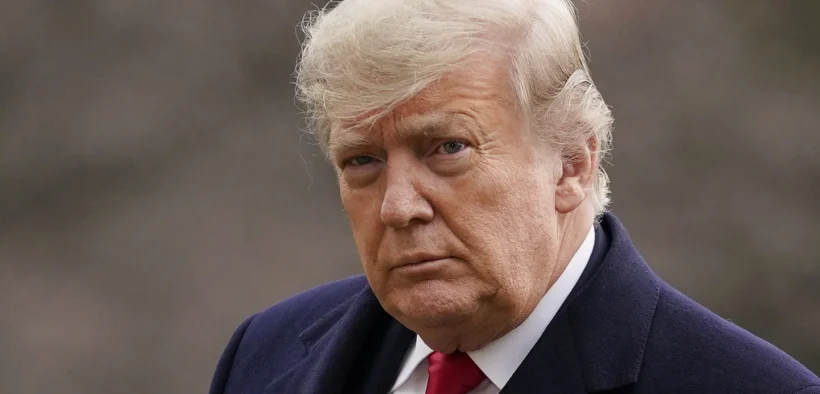Trump can’t be bought, and Big Tech is finding out the hard way
Share

Critics used to howl that President Donald Trump was selling out to Big Tech. Figures such as Jeff Bezos and Mark Zuckerberg quickly went from MAGA-world archvillains to sympathetic figures who posed for photos with Trump, congratulated him on his victory, and even turned up and applauded at his inauguration.
For Democrats, and more than a few Never Trump holdouts, this was proof that Trump was in their pocket and that his tough talk on Big Tech would produce zero results. But the Trump administration has made one thing clear: Those critics were wrong. Trump isn’t kissing up to Big Tech. He’s cracking down on it with a vengeance.
Axios coined the term “inauguration hangover” to describe Silicon Valley’s disappointment when it realized Trump couldn’t be bought or flattered. Tech executives thought they could do a few photo ops and all would be forgiven. Instead, they’re facing a president who’s not afraid to hit them where it hurts: their wallets.
The message from Trump’s Justice Department is simple: Abuse your power, undermine free speech, or harm consumers, and you’ll be held accountable, no matter how big your market cap is.
The Federal Trade Commission’s revived case against Meta, which alleges that the company acquired Instagram and WhatsApp in order to “eliminate threats to its monopoly,” shows how seriously this administration takes Big Tech antitrust enforcement.
In March, Zuckerberg called the FTC to offer an insultingly low $450 million settlement to avoid the $30 billion judgment the FTC was seeking. According to the Wall Street Journal, which cited “people familiar,” Zuckerberg’s tone on the call suggested he was “confident that President Trump would back him up.”
It seems like that confidence was misplaced. Negotiations broke down, the case went to trial last month, and Zuckerberg spent hours sweating on the witness stand.
Google provides another example. The Justice Department antitrust lawsuit, which began during Trump’s first term and continued under former President Joe Biden, accuses the tech giant of holding a monopoly in the online search market. Now that Trump is back in office, his DOJ antitrust czar Gail Slater is pushing for the harshest possible remedies. Not only will Google have to stop paying smartphone makers to set Google as their default search engine, but it will also have to sell off its own Chrome web browser.
The tech company tried to claim that the breakup would endanger our national security. Slater wasn’t buying it. “You know what is dangerous?” she asked outside the courthouse in April. “The threat Google presents to our freedom of speech, to our freedom of thought, to free American digital markets.” The only way to prevent a repeat of the censorship so many conservatives, and Trump himself, experienced during the COVID-19 pandemic and the 2020 election is to break up Big Tech, starting with Google.
Nobody can accuse Trump of being too soft on Big Tech. If anything, he’s being too hard on it, according to one prominent critic who describes his administration’s aggressive antitrust policy as “socialism.” That same critic accuses Slater of continuing the anti-market policies of the Biden administration’s antitrust team, which saw its purpose not as protecting consumers, but as preventing the concentration of economic power.
The difference between Slater and Team Biden is that Slater knows big isn’t automatically bad. She has already made that crystal clear.
“If you’re doing a merger that’s benign, we’ll just get out of the way,” she said in an April interview. In her first public address on April 21, she pledged to give economists a greater role in the process and expressed concern about regulation that “saps economic opportunity by stifling rather than promoting competition.” That’s hardly the stuff of central planning.
The Biden administration, on the other hand, launched a series of antitrust cases against companies whose only crime was being successful. It blamed rent pricing software for inflating housing prices even though all that software does is report on what renters are willing to pay. One adviser close to the Trump administration said, “This suit attracted the attention of senior Trump campaign staffers for being a transparently obnoxious case of politically motivated lawfare.”
The Biden antitrust team also targeted Visa for raising the cost of “nearly everything” because of the company’s pennies-on-the-dollar debit card transaction swipe fees. This even though consumers and businesses have plenty of options to choose from. One antitrust expert accused the Justice Department of “taking on corporations merely because of their market share percentages,” and even some progressives struggled to justify the lawsuit.
DOJ BACKS ANTITRUST LAWSUIT ACCUSING BLACKROCK AND OTHERS OF COLLUDING TO BOOST ESG
Under Biden, antitrust meant punishing success. Under Trump, it means punishing abuse. Trump’s approach is sharper. He’s focused on companies that suppress competition, harvest user data without consent, and manipulate public discourse. The shift from Biden to Trump (and from Jonathan Kanter to Gail Slater) is a transition from “big is bad” to “bad is bad.”
Big Tech earned the target on its back not because of its size, but because of its repeated abuses. Consumers are fed up. They’re tired of having no real alternatives, of being treated like the product, and of being silenced or manipulated by unaccountable platforms. Trump is doing what Biden wouldn’t: holding tech monopolists accountable for the harm they’ve done, not market share they’ve accumulated.
Randy Forbes is a former U.S. representative from Virginia. He served on the House Judiciary Committee.












